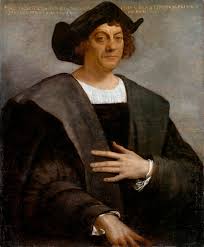The Legacy of Christopher Columbus in World History

Introduction
Christopher Columbus, an Italian explorer and navigator, is known for his role in opening up the Americas to European exploration and ultimately colonization. His voyages from 1492 to 1504 became pivotal in shaping the future of both the Old and New Worlds. The significance of Columbus’s expeditions remains a subject of debate, underscoring their impact on indigenous populations and global trade.
The Voyages of Columbus
Columbus embarked on four voyages across the Atlantic Ocean under the auspices of the Spanish monarchy, with the aim of finding a direct route to Asia. His first journey in 1492 led to the unexpected discovery of the Bahamas, which he originally believed to be the East Indies. This unexpected encounter opened a gateway for European exploration, leading to subsequent voyages that saw Columbus reach areas such as Cuba and Hispaniola.
Impact on Indigenous Peoples
While Columbus is often celebrated for his navigational skills and for being one of the first Europeans to contact the Americas, the consequences of his arrival were devastating for indigenous populations. The spread of diseases like smallpox and the subsequent colonization efforts led to significant loss of life and cultures among Native American tribes. This aspect of his legacy has led to growing calls for a more nuanced understanding of his role in history.
Cultural and Historical Revisions
As society reevaluates historical narratives, Columbus’s legacy has come under scrutiny. In recent years, many regions have adopted Indigenous Peoples’ Day in place of Columbus Day, reflecting a shift toward acknowledging the historical experiences of indigenous communities. Educational curriculums are also evolving to provide a fuller picture of the past, recognizing the complexities of exploration and colonization.
Conclusion
Christopher Columbus remains a polarizing figure, embodying both the spirit of exploration and the darker aspects of colonialism. His voyages marked the beginning of an era that profoundly transformed global dynamics. For today’s readers, understanding Columbus’s complex legacy encourages a deeper engagement with history, reiterating the importance of multiple perspectives in recounting the past. As we reflect on his impact, it becomes evident that his voyages played a significant role in shaping the modern world, underscoring the interplay between discovery and its consequences.









